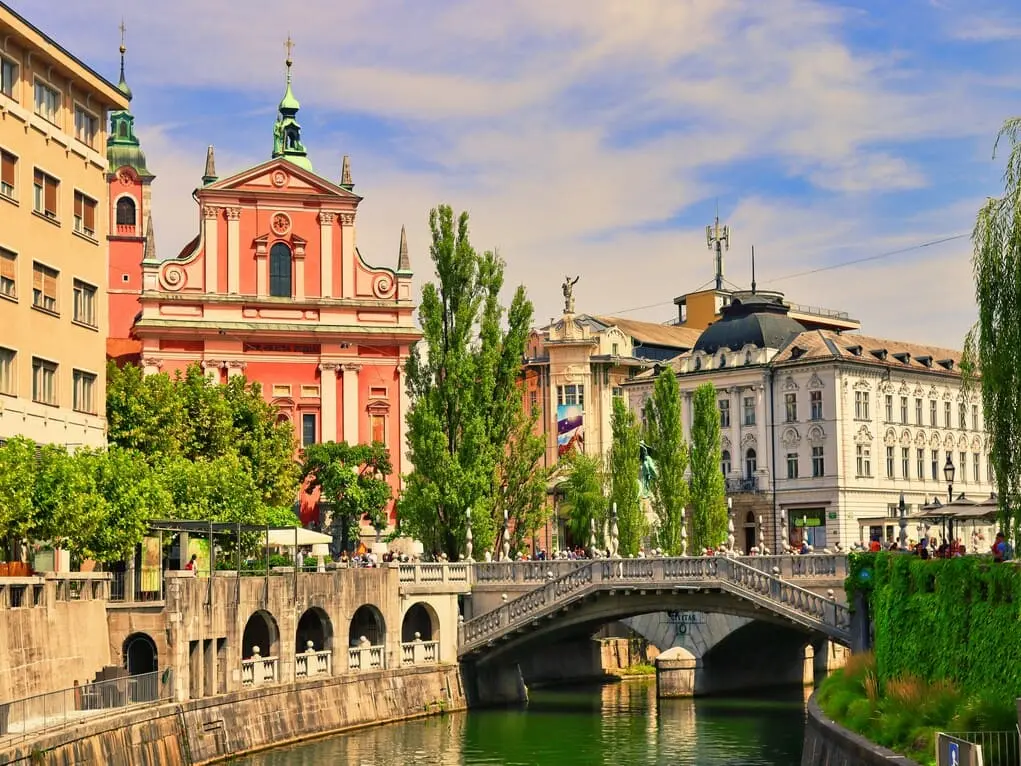Managing an inheritance involving assets or heirs in Slovenia and Spain can be complex. Understanding how to manage an inheritance in Slovenia requires knowing which law applies, collecting and translating documents, identifying the competent notary, paying taxes in each country, and registering inherited assets correctly. Below you’ll find the key steps, required documents, and FAQs to guide you through the process.
If you’re wondering, “How do I manage an inheritance in Slovenia?”, this guide explains the legal process, the documents you’ll need, how taxes are handled, and how to coordinate between Slovenia and Spain effectively.
Table of Contents
Steps
When you need to understand how to manage an inheritance in Slovenia, especially when heirs live in Spain or assets are divided between both countries, these are the essential steps:
Applicable law and testament:
Determine the deceased’s habitual residence to identify which law applies. For EU citizens, the EU Regulation 650/2012 generally governs cross-border inheritances. Review any will and check for a professio iuris clause (choice of law), which may specify whether Slovenian or Spanish law should apply.
Documentation phase:
Gather key certificates such as the death certificate, last will, and asset inventory. Documents issued abroad must be apostilled under The Hague Convention and translated by a sworn translator into Slovenian.
Notary and representation:
In Slovenia, inheritance proceedings are handled by notaries who act under the supervision of local courts. If heirs reside in Spain, they may authorize representation through a notarized power of attorney, allowing procedures to be completed remotely.
Fiscal duties:
Calculate and pay inheritance tax in the relevant jurisdictions—Spain, Slovenia, or both—depending on where the assets are located and the tax residence of the heirs. Coordination between countries is essential to avoid double taxation.
Acceptance and registration:
Once taxes are paid and the inheritance deed is signed, register the inherited property with the Slovenian Land Register or the Spanish Property Registry, as appropriate.
Documents and Deadlines
| Document | Issued by | Country | Apostille / Translation required | Estimated Time | Approx. Cost |
|---|---|---|---|---|---|
| Death certificate | Civil Registry | Country of death | Yes, if foreign | 3 – 10 days | €10 – €30 |
| Will / last wishes | Notary or Registry | Slovenia / Spain | Apostille + translation if needed | 3 – 15 days | €20 – €60 |
| Inventory of assets | Banks / Registries | Both countries | According to document | 1 – 4 weeks | — |
| Apostille of The Hague | Competent Authority | Country of origin | — | 1 – 10 days | €20 – €60 |
| Sworn translation | Certified translator | — | — | 2 – 7 days | €0.08 – €0.15 / word |
| Deed of acceptance / partition | Notary | Slovenia / Spain | According to annexes | 1 – 3 weeks | €300 – €1,200 |
These steps help you track progress and costs while learning how to manage an inheritance in Slovenia effectively.
Taxes
Understanding inheritance taxation is a key part of how to manage an inheritance in Slovenia.
Spain (ISD):
Spanish Inheritance Tax varies by region (Comunidad Autónoma). Reductions apply for close relatives.
Municipal plusvalía:
Payable if urban real estate is inherited in Spain.
Slovenia
Inheritance tax is governed by national law. Close relatives (spouse, children, parents) are generally exempt, while distant relatives are taxed at progressive rates.
Double taxation:
Spain and Slovenia apply EU rules and bilateral conventions to prevent double taxation. Always check both tax authorities before payment.
For precise information, consult:
- Spanish Tax Agency (AEAT)
- Financial Administration of the Republic of Slovenia (FURS)
- EU Regulation 650/2012
Allocation and Registration
- Proper registration finalizes the inheritance process. To fully understand how to manage an inheritance in Slovenia, ensure that:
- The deed of acceptance or partition is notarized.
- Properties in Slovenia are entered in the Land Register (Zemljiška knjiga).
- Spanish properties are registered with the Property Registry once inheritance tax (ISD) is settled.
- If managing remotely, powers of attorney and notarized translations must be legally recognized in both countries.
- These measures guarantee legal certainty and proper ownership registration in both jurisdictions.
Frequently Asked Questions
Begin by determining the applicable law usually EU Regulation 650/2012 for cross-border inheritances. Collect all necessary certificates and wills, ensure any foreign documents are apostilled and translated, and appoint a Slovenian notary to supervise the process. After that, handle the tax obligations in both countries and register the inherited assets in Slovenia and Spain.
You will need the death certificate, last will or testament, and an inventory of assets. When documents originate abroad, they must carry an apostille and a sworn translation into Slovenian. These steps guarantee the documents are legally valid and recognized by Slovenian authorities.
Yes. A Slovenian notary is essential to formalize inheritance proceedings. They authenticate wills, conduct inheritance hearings, and ensure the proper registration of inherited property. The notary also confirms that each stage complies with Slovenian and EU succession law.
Taxes are generally due in both countries:
In Spain, heirs must pay Inheritance Tax (ISD) and, if applicable, municipal plusvalía for urban real estate.
In Slovenia, inheritance tax applies based on the heir’s relationship with the deceased — close relatives are often exempt, while distant relatives pay progressive rates.
Coordinating both systems prevents double taxation and ensures compliance with each jurisdiction.
Yes. Heirs living abroad can issue a notarized power of attorney, authorizing a local lawyer or representative to act on their behalf. Slovenian notaries and Spanish authorities accept such representation when documents are properly legalized and translated, allowing the entire process to be managed efficiently from another country.
Conclusion
If you are still wondering “How to manage an inheritance in Slovenia?”, the best approach is to seek professional guidance. International successions between Spain and Slovenia involve complex legal, tax, and translation requirements. Grupo Hereda specializes in cross-border inheritances, offering personalized support to coordinate documents, manage taxes, and handle every formality efficiently and securely. With expert assistance, you can ensure your inheritance is processed smoothly and in full compliance with both legal systems.
Grupo Hereda
Grupo Hereda is a law firm specialized in international and national inheritances, with more than 25 years of experience handling complex succession cases.
We assist with inheritances in Slovenia involving heirs in Spain, as well as inheritances in Spain with beneficiaries residing in Slovenia or other countries.
Our legal team coordinates every phase of the process from obtaining certificates and apostilles to settling taxes and registering assets in the corresponding registries.
If you’re unsure how to manage an inheritance in Slovenia Grupo Hereda guides you step by step, offering comprehensive legal advice and remote representation.
We also manage all types of international and national inheritances, ensuring legal security and time efficiency.
💬 Free Consultation:
If you are facing a complex inheritance or don’t know where to start, don’t give up your rights.
Contact us, and we will find a personalized solution for your case.
📞 Call us: (+34) 915 487 550
📧 Email: info@grupohereda.com
🌍 We operate throughout Spain and handle international inheritances across Europe and beyond the EU.






